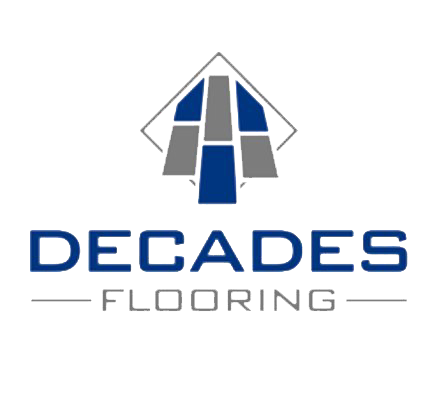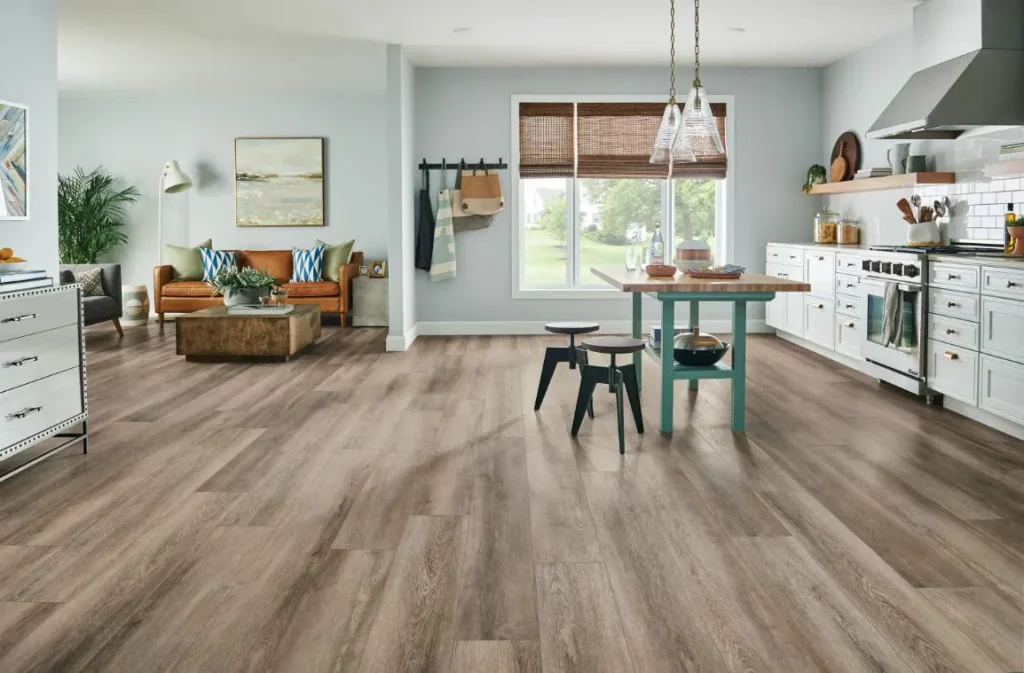When it comes to choosing the right flooring option for your home or office, there are a plethora of options to choose from. However, hardwood flooring remains one of the most popular choices among homeowners and interior designers alike.
Hardwood floors exude a timeless elegance that can elevate any space while also adding value to your property. Despite its popularity, hardwood flooring may not be the best fit for everyone’s needs or budget.
Other flooring options such as laminate, vinyl, tile, and carpet offer their own unique benefits and drawbacks that must be considered before making a decision. In this article, we will explore the pros and cons of hardwood flooring compared to other popular alternatives as well as key factors to consider when deciding which type of flooring is right for you.
Pros and Cons of Hardwood Flooring
An examination of the advantages and drawbacks of hardwood flooring reveals its durability and aesthetic appeal, but also highlights the high cost and susceptibility to water damage.
Hardwood floors are known for their longevity, which makes them a worthwhile investment in any home. With proper maintenance, they can last for decades without needing to be replaced. Additionally, hardwood floors have a timeless look that can complement any decor style.
However, one major drawback of hardwood flooring is its high cost. It is one of the most expensive options available when it comes to flooring choices. Additionally, hardwood floors are susceptible to water damage if not properly sealed or taken care of. This means that spills or leaks could potentially ruin portions of your floor, leading to costly repairs or replacements.
Other Flooring Options
Among the various options available, it is worth considering the durability and versatility of materials such as vinyl and ceramic tiles when choosing a flooring solution for your home.
Vinyl flooring has come a long way from its predecessors, with advancements in technology resulting in more realistic designs that can mimic the look of hardwood or stone. It is also extremely durable and can withstand heavy foot traffic, making it ideal for high-traffic areas like kitchens and bathrooms.
Ceramic tiles, on the other hand, offer unparalleled durability and are resistant to scratches, stains, and moisture. They are perfect for areas prone to spills or accidents like entryways or mudrooms.
Here are four reasons why vinyl and ceramic tile flooring may be great options for your home:
1. Both materials are easy to clean and maintain.
2. They offer a wide variety of design possibilities.
3. They are affordable compared to hardwood floors.
4. They have a longer lifespan than other types of flooring materials.
Ultimately, when choosing between different flooring options, it is important to consider factors such as cost, durability, maintenance requirements, and design preferences in order to make an informed decision that will enhance both the aesthetic appeal and functionality of your living space.
Factors to Consider When Choosing Flooring
When deciding on the flooring for your home, it is important to carefully consider various factors that can impact the overall aesthetic and functionality of your living space.
One important factor to consider is the durability of the flooring. A high-traffic area such as a hallway or kitchen may require a more durable material like hardwood or tile, while a bedroom or living room may be better suited for carpet. Additionally, it is important to consider your lifestyle and personal preferences when choosing flooring. For example, if you have pets or young children, you may want to avoid materials that are easily scratched or stained.
Another factor to consider when choosing flooring is maintenance and upkeep. Some materials like hardwood require regular maintenance such as refinishing and polishing, while others like vinyl or laminate are relatively low-maintenance.
It is also important to think about the climate in which you live and how it affects your flooring choice. For example, in areas with high humidity levels, hardwood can expand and contract causing damage over time.
Ultimately, by taking into account these various factors when selecting your flooring option, you can ensure that you choose a material that not only looks great but also meets all of your practical needs for years to come.
Frequently Asked Questions
What is the average lifespan of hardwood flooring compared to other flooring options?
The average lifespan of hardwood flooring is typically longer than other options, with proper maintenance. However, the specific lifespan varies depending on factors such as foot traffic and environmental conditions.
How does the cost of maintaining hardwood flooring compare to other flooring options?
The cost of maintaining hardwood flooring varies depending on the type of wood and finish used. Generally, hardwood floors require regular cleaning and occasional refinishing, which can be costly. Other options like vinyl or laminate may have lower maintenance costs over time.
Can hardwood flooring be installed in areas with high moisture content, such as bathrooms or kitchens?
The moisture content in areas like bathrooms and kitchens poses a challenge to installing hardwood flooring. However, with proper installation techniques and sealants, it can be done successfully. Consulting with a professional is recommended.
How does the resale value of a home with hardwood flooring compare to a home with other flooring options?
Research shows that homes with hardwood flooring tend to have a higher resale value compared to those with other flooring options. However, the specific type of hardwood and the overall condition of the flooring can also impact its value.
Are there any environmental concerns or benefits associated with choosing hardwood flooring over other flooring options?
Environmental concerns and benefits associated with hardwood flooring include deforestation, but also the potential for sustainably harvested wood, and increased carbon storage. Other flooring options may use more synthetic materials, contributing to pollution and waste.
Conclusion
Hardwood flooring is a popular choice for homeowners due to its durability, timeless aesthetic, and potential to increase property value. However, it is not the only option available. Other flooring options such as laminate, vinyl, tile, and carpet also have their own benefits and drawbacks.
When deciding on the right type of flooring for your home, it is important to consider factors such as budget, lifestyle needs, maintenance requirements, and design preferences.
One figure of speech that can be used to describe the decision-making process when choosing between hardwood flooring and other options is ‘weighing the pros and cons.’ This phrase highlights the importance of carefully considering both the advantages and disadvantages of each type of flooring before making a final decision.
While hardwood may offer a classic look that never goes out of style, it may not be suitable for households with pets or young children who are prone to spills and accidents. On the other hand, carpet may provide comfort underfoot but can quickly become stained or worn down over time.
In conclusion, there are various factors to consider when choosing between hardwood flooring versus other options such as laminate or carpet. By taking into account personal needs and preferences along with practical considerations like cost and maintenance requirements, homeowners can make an informed decision about what type of flooring will work best for their homes. Ultimately, this decision should be based on a balanced evaluation of both pros and cons in order to ensure long-term satisfaction with one’s choice.
The Cost-Effective Solution: Engineered Hardwood Flooring For Your Home



